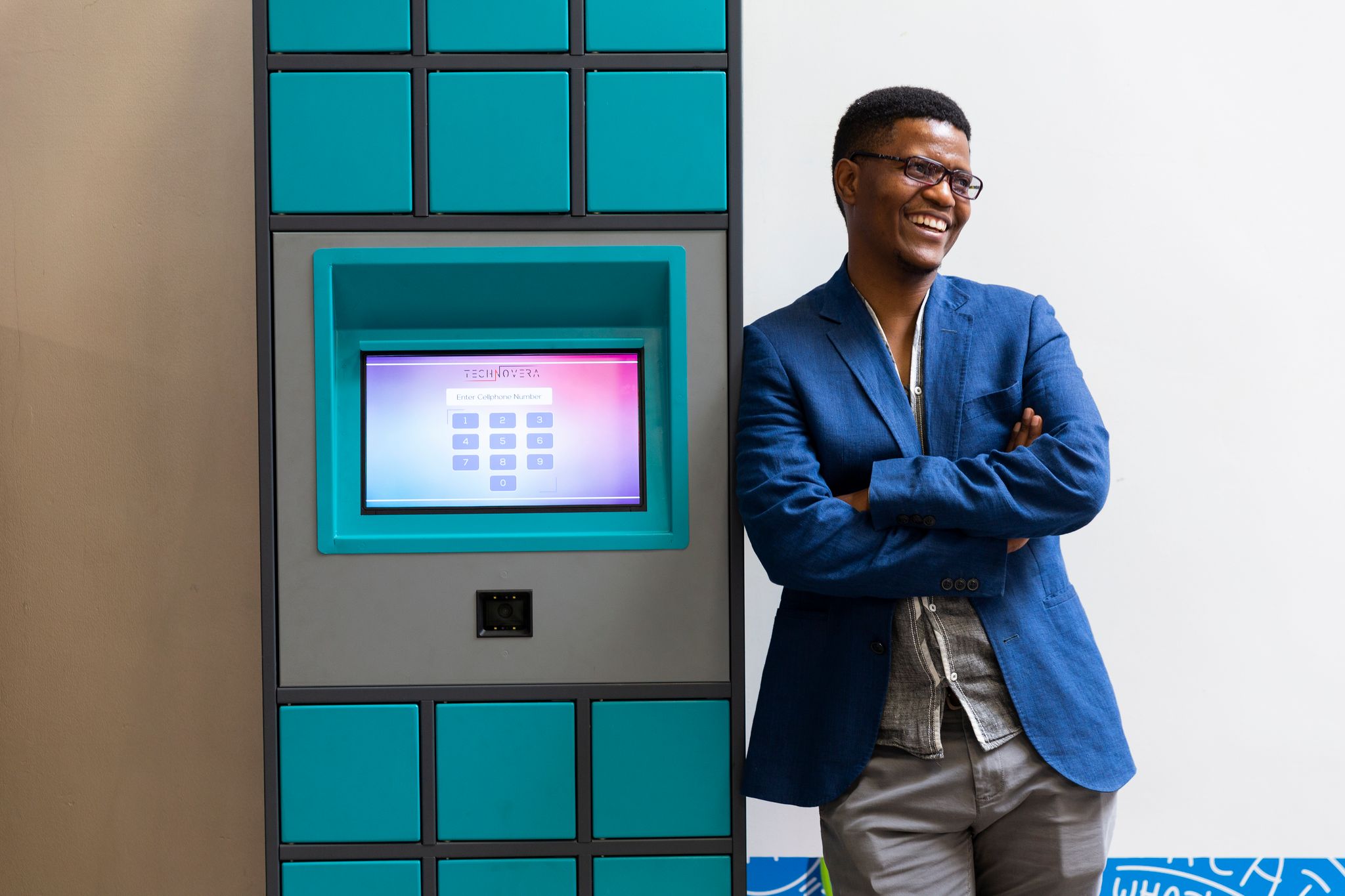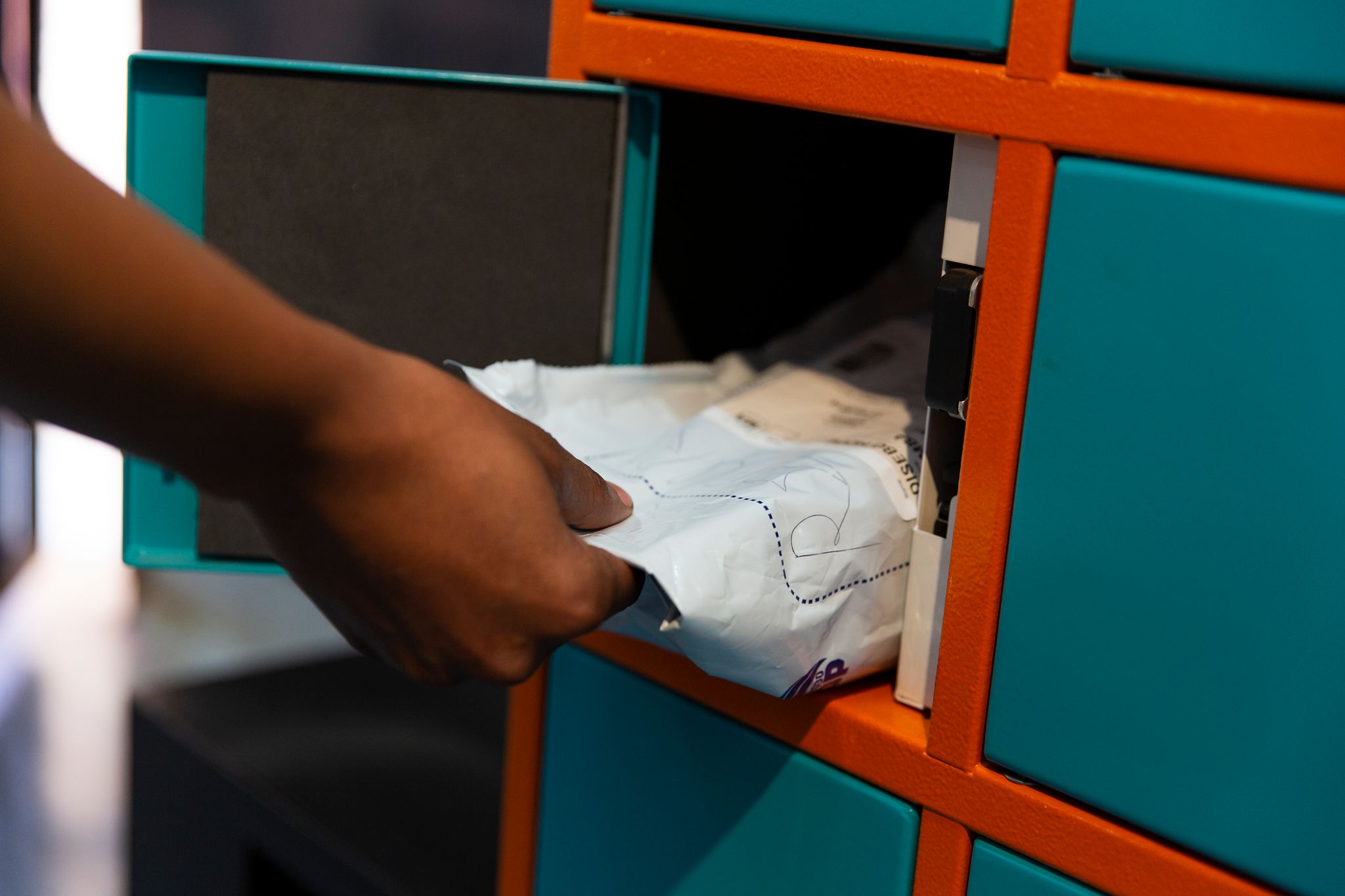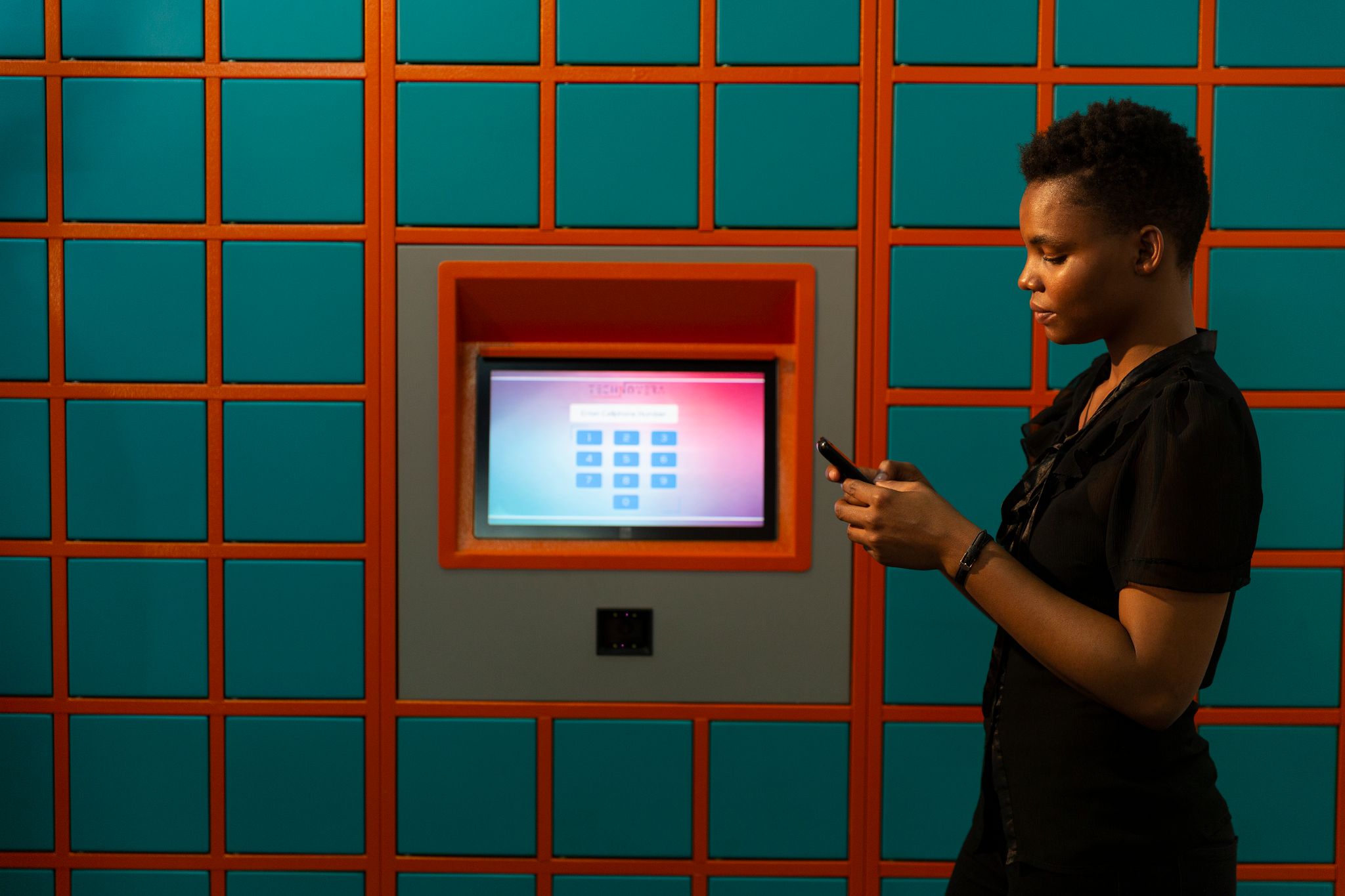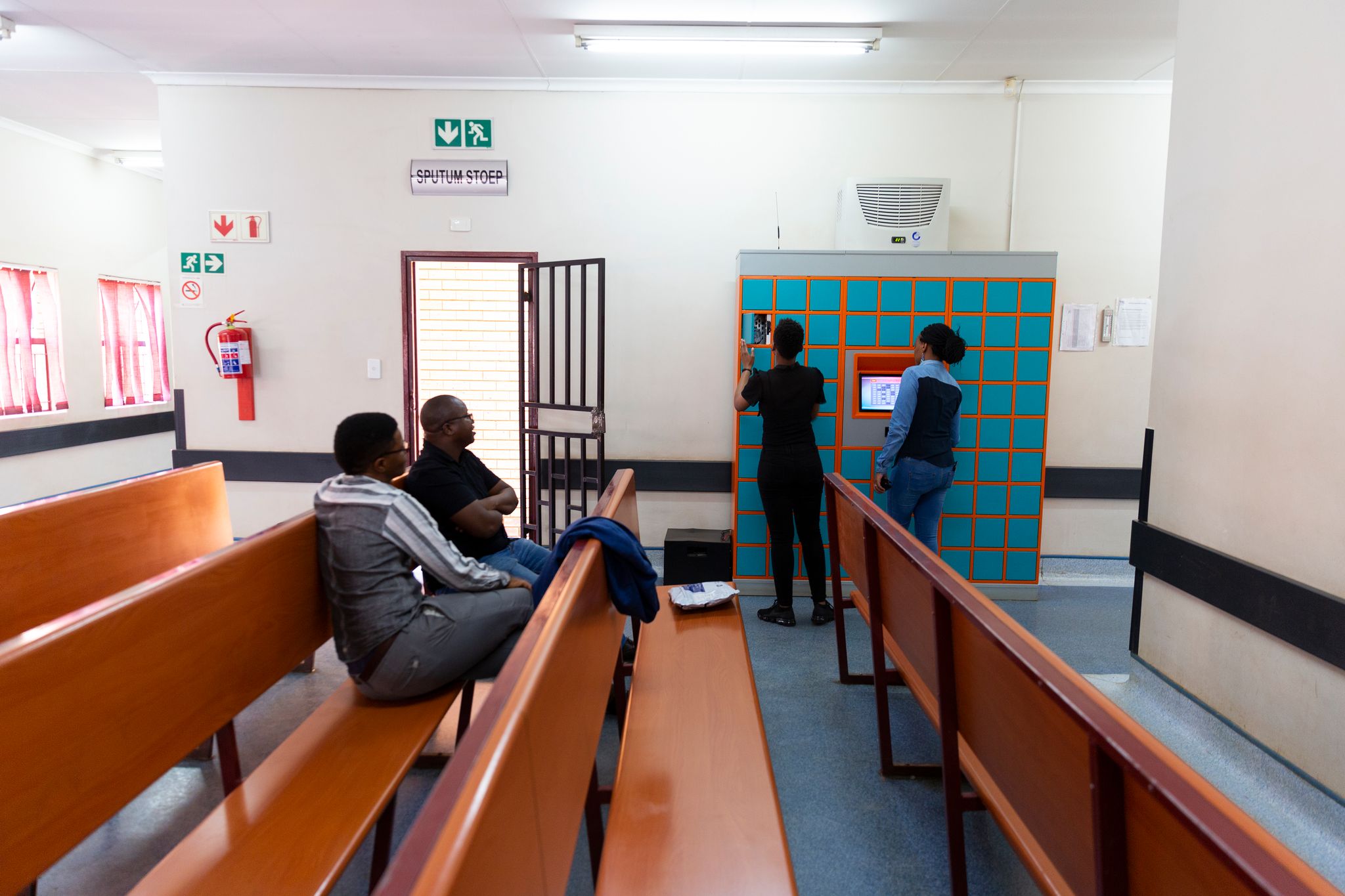
Challenge
Access to medicine is a global health issue; one of the biggest challenges is convenience.In sub-Saharan Africa, the burden of repeat prescriptions on health resources is growing – clinics are often under-staffed and underresourced but diagnoses of non-communicable and chronic diseases are on the rise.
The collection of prescriptions often takes hours out of a patient’s day and is compounded by the costs of transportation as well as lost wages. This further exacerbates the impact of illness on the patient’s daily life. But with most of Africa’s population relying on the public healthcare system, these delays are inevitable. In fact, up to 70% of a facility’s daily prescription tasks is devoted to serving repeat prescriptions.
Improving patient access to medication needs to be addressed to better direct public health
Innovation
Pelebox is a self-service smart locker system designed to ease pressure on public healthcare facilities by distributing medicine to regular patients. It was developed by Neo Hutiri, who was diagnosed with a chronic illness himself, stimulating his interest in the issues with repeat prescription access. With Pelebox, patients can collect their prescriptions quickly by entering their personal phone number and a one-timepin in order to unlock a locker, where their prepackaged medications have been loaded ahead of time.
At the same time, Pelebox is easing pressure for clinic resources, helping them monitor medication through a digital system. It also provides a socially distanced way for patients to access their medication. In a country where the average time spent in a queue to receive chronic medicine is three hours, Pelebox has enabled patients to receive their medication within 30 seconds.

Pelebox smart locker system
Academy support
Support from the Africa Prize enabled the Technovera team to expand its work on a pan- Africa level. The programme offered mentorship,training and holistic business support and they were also able to leverage media opportunitiesfor their business and gain recognition globally.In the year Pelebox won the Prize, the team secured a meeting with the South African Ministry of Health, following a televised interview,which was pivotal to their later success.
The Africa Prize alumni network has been a key contributor to the development of the business: it provided Neo with a safe space to interact with alumni and draw from their expertise. It also offered an opportunity to give back to the community and support those working in similar spaces.
Finally, as one of the Africa Prize winners, Neo and his team used the award money towards setting up a local manufacturing site. They also invested in tooling to improve the quality of their products and provided crucial training for the team.
“The Africa Prize network has been a safe space to work with high calibre people across the continent. As innovators, we carry a lot on our shoulders, and being able to sense-check something with similar people is ridiculously valuable. Everyone is incredibly supportive – we’re always helping the network access our achievements or share opportunities we
haven’t been able to pursue. Together, we can dream a lot bigger, beyond what we can each do alone.”
Neo Hutiri, Technovera

Impact
Today, Pelebox can be found in over 70 communities across southern Africa. It reaches more than 56,000 patients every month and has supported over 250,000 individual patients to date. In response to the COVID-19 pandemic, Pelebox worked with the Academy’s ProjectCARE (COVID-19 African Rapid Entrepreneurs) to increase orders in support of healthcare facilities.With revenue increased over 100 times since being involved in the Africa Prize, and an expanding portfolio of communities they are operating in, Neo’s business growth is a testament to the relevance of tech-based healthcare innovation on the African continent.
Future plans
The Technovera team is focused on expanding the Pelebox innovation across southern Africa,Botswana, Zimbabwe, Namibia, and Eswatini – and is continuing to look for African partners across the rest of the continent. But Neo and his team’s mission to solve the problem of access to medicine is not over. Townships, slums, as well as low-density communities like rural villages, all have different needs when it comes to access and the Technovera team believes that extending value to people who live there is an important next step in the region’s healthcare ecosystem. This could be addressed by bringing people and access points closer together or by preventing long queuing times in areas of high population density. Figuring out how their solution can be scaled to approach this issue within other contexts will be a big part of how Technovera will scale the business in the future.

